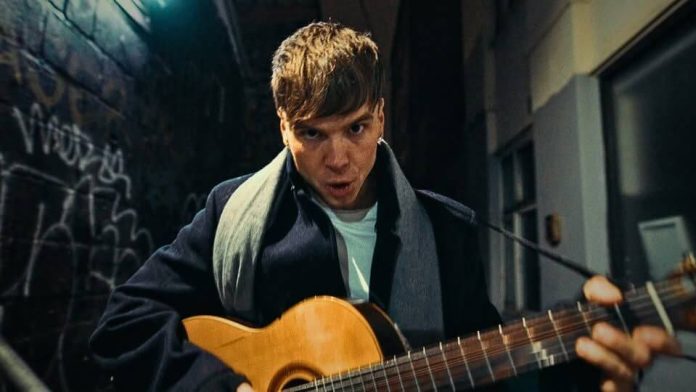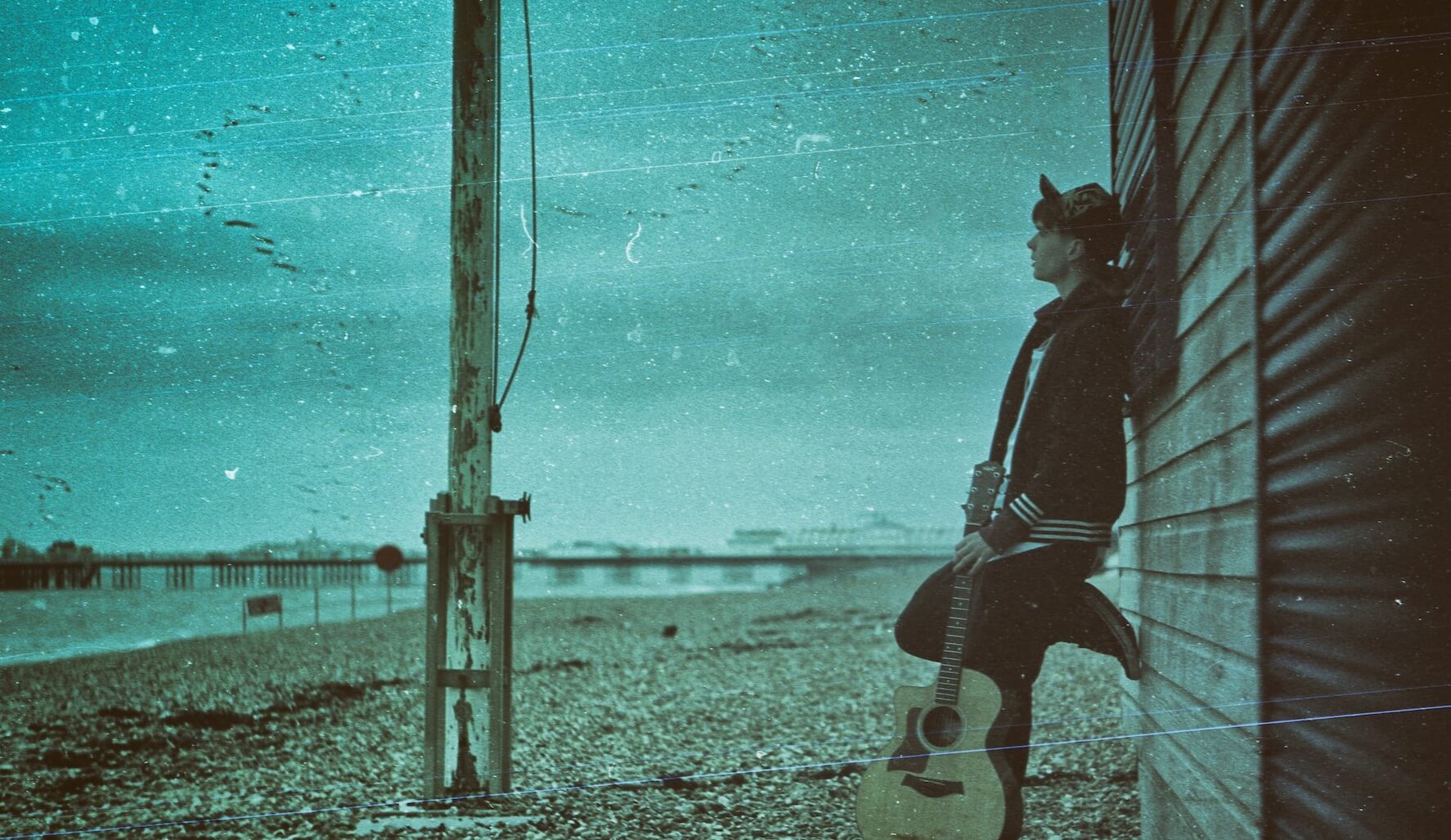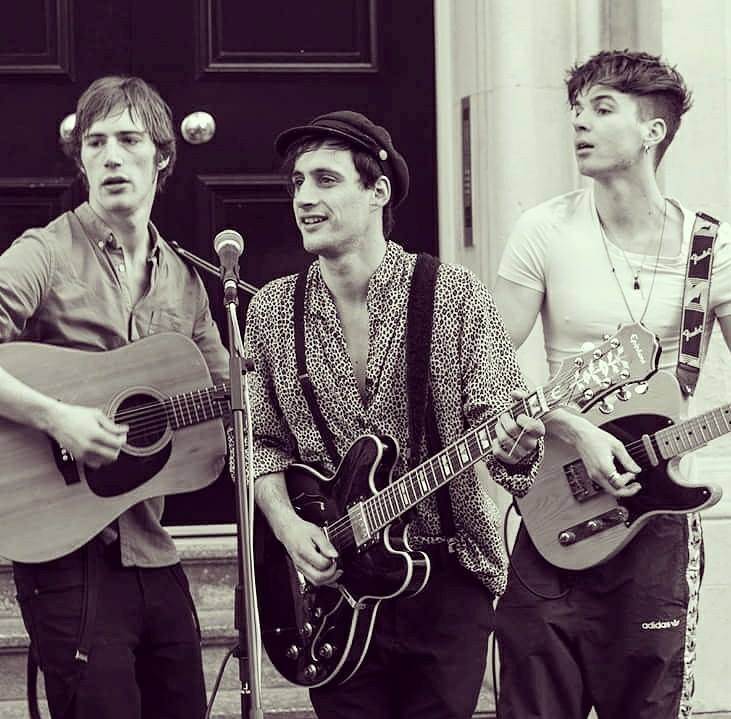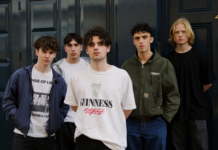
Last Updated on 12th September 2025
I was writing the article on Ren performing with the Big Push again this summer, and it’s time to try and summarise Ren Gills’ life.
These words feel empty written by a stranger to his pain. Naturally he paints a better job in his candid series of videos on his YouTube Channel documenting his life, while I do a disservice with short facts. While it’s his story to tell, not mine, it’s important to share.
The early life of Ren Gill
Born in Dwyran on the island of Anglesey, the North-West corner of Wales on the 29th March 1990 (if Wikipedia is correct), he summed up his childhood in his 2017 song the 1990s, but it was, by all accounts the average (and occasionally naughty) boyhood. In his teenage years, he was full of energy, driven to change the world, and deeply passionate about music. He felt a strong sense of divine purpose, but fate had other ideas.
Key timelines points:
- He met his friend Joe Hughes when he was 9, who later committed suicide in Menai Bridge when Ren was back from University at Christmas in 2010.
- In Summer 2007 (aged 17 years old) he went to a festival in Dorset and very likely got bitten by a tic from a deer that gave him Lyme’s disease (others with him developed similar ME/CFS-like symptoms). It was the start of a living nightmare of pain and suffering, years of miss-diagnosis, and a self-driven quest to solve it at great personal expense. It wasn’t until 2015 when he finally got a correct diagnosis.
- Formed the Big Push in 2017 with housemate Romain Axisa, and friend Gorran Kendall. They were later joined by Irish drummer Glenn Chambers.
At 17, Ren felt indestructible, until in a sudden and mysterious collapse changed everything. After a night out in Cardiff, he awoke with overwhelming dread, brain fog, disconnection, and physical illness. What seemed like a hangover never passed. For eight years, Ren would live inside what he describes as a waking nightmare.
Collapse into Illness
Doctors dismissed him or misdiagnosed him with bipolar disorder, prescribing medications that worsened his condition. Therapy told him his symptoms were “all in his head,” when in reality the illness was breaking his body and mind. He felt locked outside of himself, observing a foggy, exhausted ghost take his place. University became impossible; even daily conversations were out of reach.
His suffering deepened with the suicide of his childhood friend Joe, whose loss carved a hole through Ren’s world. Later, another close friend, Callum, also died in a rock-climbing accident. Death became both a constant companion and a strange teacher: he no longer feared it, but he feared the thought of living forever in sickness.

Clinging to Music
Amidst despair, music remained his lifeline and his source of income as a very talented singer songwriter and performer. Busking on the streets gave him brief moments of freedom and vitality. He formed early bands like Trick the Fox with Charlie Fowler while at University in Bath, and despite being largely bedbound, he poured himself into song writing.
He moved to Brighton in 2013 in an attempt to disassociate himself from his grief of Joe’s suicide. There he encountered a teenage busker named Sam Tompkins, lending him an amp and witnessing his extraordinary voice. Their connection would return later in life to change everything.
While busking singing his original lyrics and playing acoustic guitar, he was approached by Eric Appapoulay, the producer of Plan B’s album the Defamation of Strickland Banks, who took him to London to record an album in a professional recording studio. His health became so bad he had to return to live with his mum for Wales to recuperate, and lost the record deal while trying desperately to recover.
Even as his health declined, Ren explored every possible avenue of healing, from supplements and detoxes to spiritual practices, chanting, shamans, and energy healers. Some experiences offered comfort; others crossed boundaries and left him feeling betrayed. He documented his experiments in a video series (Me vs. ME), becoming a voice for countless others with chronic illness who felt unseen. His work caught the attention of filmmaker Jennifer Brea, and he wrote the song Patience for her acclaimed documentary Unrest.
Rock Bottom & Breakthroughs
By 2014–15, Ren hit his lowest point: bedbound, in constant pain, unable to tolerate food, hypersensitive to light and sound. He underwent an experimental faecal transplant in a desperate attempt for a cure, which briefly triggered mania, hallucinations, compulsions, and paranoia, a terrifying psychotic spiral. Yet an antibiotic course his own research led him to (penicillin) unexpectedly cleared his psychosis, revealing a bacterial/immune link. For the first time, Ren glimpsed hope that his illness might be treatable.
When at a clinic in Germany for ME in Brussels in 2015, he was correctly diagnosed with Lyme disease for the first time. Tests confirmed the diagnosis, with Bartonella, and immune dysfunction. The diagnosis brought validation but also confusion, Lyme was rare in the UK, a medical battlefield with polarized views. Short bursts of antibiotics helped but never lasted. The NHS offered little support, so Ren looked abroad.
The “Angels”
Throughout his journey, Ren describes meeting three “angels”:
- Joe’s cousin, met by chance while busking in Bath, who became his first serious girlfriend.
- A hallucinated homeless man, during his psychotic breakdown, who comforted him with the words: “Everything’s going to be okay, Ren.”
- A British doctor in Los Angeles, who offered him life-changing experimental stem cell therapy free of charge.
The stem cell treatments (in LA and later Frankfurt) didn’t cure him, but they gave him enough energy to re-join life, to walk outside, return to music, and reconnect socially.

The Big Push
Back in Brighton, Ren moved in with fellow musician Romain Axisa. With fellow busker Goran Kendall, they played the Brighton’s Pride celebrations in August 2017. They formed The Big Push, a rowdy busking band that captured Brighton’s streets with raw energy. For Ren, simply being able to play was victory after years of isolation, even though symptoms like leg pain, buzzing feet, and brain fog never fully left.
Ren’s personal life was turbulent, intense and unstable relationships mirrored the chaos of his inner world. He struggled with trust, intimacy, and attachment, carrying traumas of loss and illness into love.
Viral Spark & Second Chance
In 2018, Ren reunited with Sam Tompkins. Together they wrote Blind Eyed, What Went Wrong, and Same Old Situation. While busking to fund a music video, they improvised a new live version of Blind Eyed, which was pure magic as it wasn’t the version they had recorded. Captured on video, it spread like wildfire online. Soon, their busking performances went viral worldwide. Streets shut down from the size of the crowds; even Elton John gave them praise on radio.
For Ren as a performer, it was a rebirth, a second chance at a music career he thought illness had stolen forever. In true testament to his character he dedicates his voice to others still lost in the dark, urging them to hold on to hope, to trust that escape is possible.
In 2014 he performed centre stage at the Secret Garden Party to critical acclaim.
Ren’s journey isn’t polished. It’s messy, painful, sometimes chaotic, but also inspiring. His gift is more than music; it’s honesty. He doesn’t just write songs; he shows people that even in darkness, there’s a way forward.

































